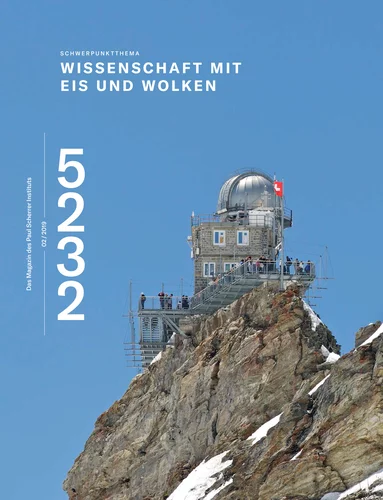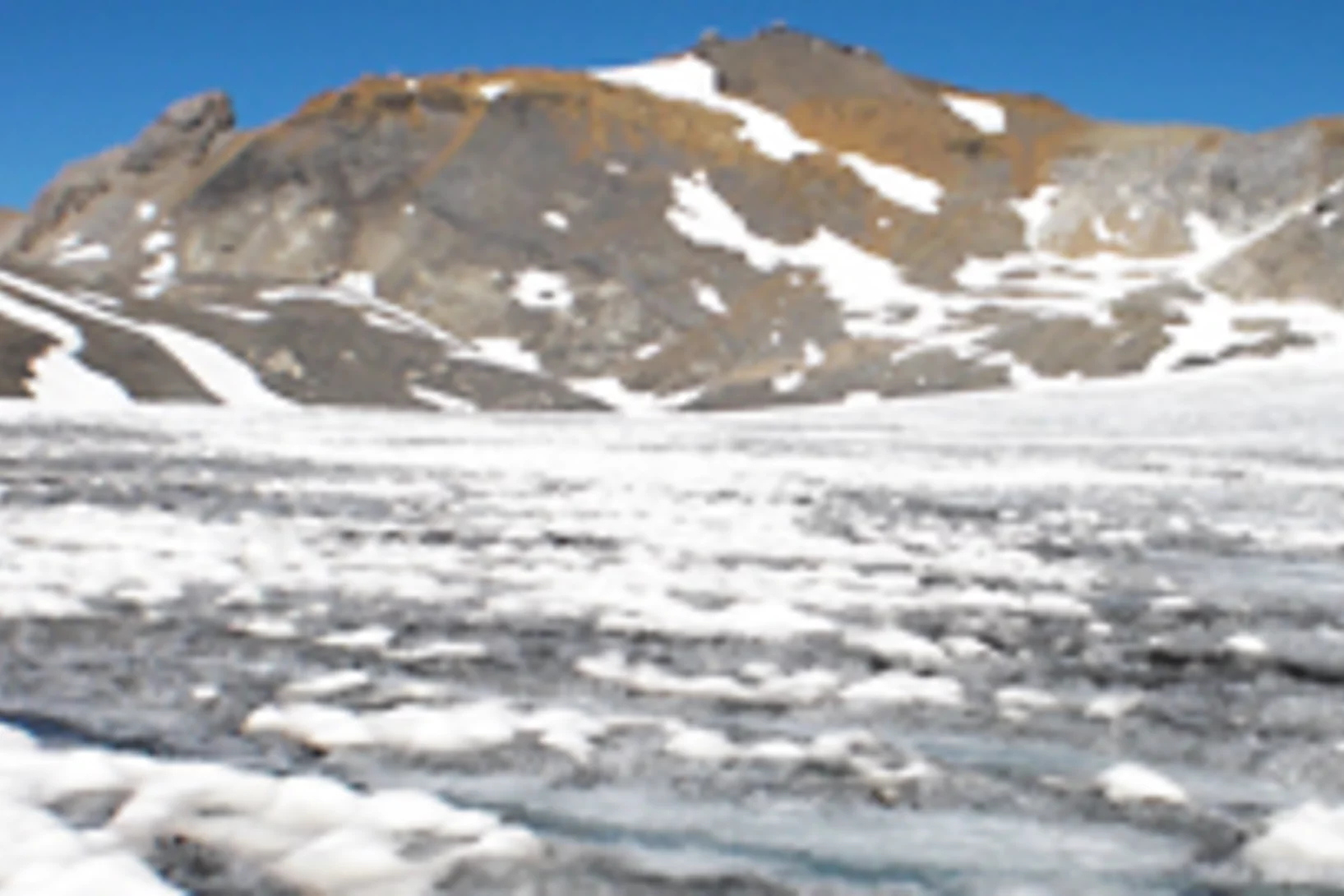On September 14, an expedition within the framework of the international project Ice Memory is setting out to carry out ice core drilling on the glacier of the mountain massif Grand Combin in the Swiss canton of Valais. Researchers from the Paul Scherrer Institute PSI are helping, at an altitude of more than 4,000 metres, to protect the cold memory of the earth.
As Earth's glaciers melt as a result of climate change, Earth is also losing a significant archive of its climate history. Embedded in the depths of the ice layers, which are sometimes several hundred metres thick, are among other things gases and particles from long ago. When these layers are lifted out of their cold dungeon in the form of ice cores, investigations of these gases and particles can be used, for example, to gain important insights about the composition of Earth's atmosphere in earlier eras and to draw conclusions about climatic developments, among other things.
"Beyond that, the ice cores also certainly contain still other deposits and residues that could help us answer scientific questions – which ones, we don't even know yet – in the future", says Margit Schwikowski, head of the Laboratory for Environmental Chemistry at PSI and leader of the expedition. It is conceivable, for example, that the ice might contain residues of the genetic material DNA that could be traced to unknown animals, or even frozen microorganisms that could provide information about entire ecosystems of the past.
Potentially, messages from several thousand years ago
Under Schwikowski's direction, on the 4,100-metre-high glacier saddle of Grand Combin, an eight-person team will drill three parallel ice cores up to 80 metres deep. "At that depth, we will hit the rock bed", Schwikowski explains. "How far back the information we can obtain from these ice cores will reach, we can't yet say", the environmental chemist says. "Potentially it will be several hundred to several thousand years." Only the precise examination of the ice cores will show how far back scientists can look into the past with this archive.
The eight- to ten-day expedition is part of the global Ice Memory project. Launched by a French and Italian team with the support of the Université Grenoble Alpes Foundation and other scientific partners, the project aims to bring together researchers in the most significantly affected countries. It plans to extract ice cores from the threatened glaciers, which then are to be stored in a snow cave in Antarctica. The high Antarctic plateau, where temperatures usually stay below -50 degrees Celsius, is considered one of the world's most reliable natural freezers. Switzerland is participating in the project, which is supported amongst others by UNESCO.
With this help, the ice-cold memory of the earth should be preserved as a world heritage. With that, future generations too will be able to explore the environmental conditions and climatic developments of the past.
Along with researchers from PSI, scientists from the Università Ca' Foscari Venezia are also involved in the current expedition.
Contact
Further information
About PSI
The Paul Scherrer Institute PSI develops, builds and operates large, complex research facilities and makes them available to the national and international research community. The institute's own key research priorities are in the fields of future technologies, energy and climate, health innovation and fundamentals of nature. PSI is committed to the training of future generations. Therefore about one quarter of our staff are post-docs, post-graduates or apprentices. Altogether PSI employs 2300 people, thus being the largest research institute in Switzerland. The annual budget amounts to approximately CHF 450 million. PSI is part of the ETH Domain, with the other members being the two Swiss Federal Institutes of Technology, ETH Zurich and EPFL Lausanne, as well as Eawag (Swiss Federal Institute of Aquatic Science and Technology), Empa (Swiss Federal Laboratories for Materials Science and Technology) and WSL (Swiss Federal Institute for Forest, Snow and Landscape Research). (Last updated in June 2025)




